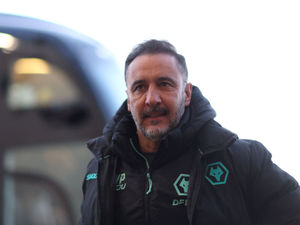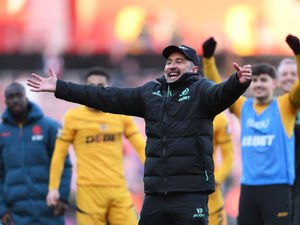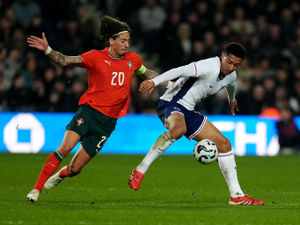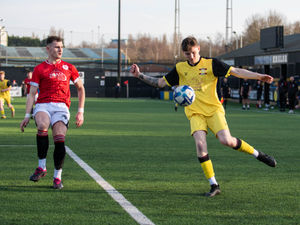Johnny Phillips: VAR’s biggest own goal will further erase trust
This week we heard the most eagerly anticipated audio since the release of the Watergate Tapes. The PGMOL’s decision to make the conversations between the referee and VAR officials from last Saturday evening’s Premier League match between Spurs and Liverpool was a sign of the increasing transparency of the organisation, but that’s where their credit ended.
Luis Diaz’s goal was disallowed on-field for an offside call that proved to be wrong when the VAR lines were drawn onto the screen. It was an eye-opening exchange which brought some major issues to the fore.
What stood out most was that the VAR, Darren England, and assistant VAR, Dan Cook, had to be corrected by the replay operator and the VAR hub’s operations executive during the process. We listened to the match officials failing to grasp their mistake until it was too late – thinking a goal had been awarded on the pitch - while the operators, whose job has nothing to do with officiating, were the ones who spotted the error.
And maybe it wasn’t too late? Both VAR officials failed to take on board the advice to intervene and stop the game, which had by now restarted with a Spurs freekick. They simply froze in the moment. By sticking rigidly to procedure they allowed the mistake to escalate into the crisis that has unfolded. Had they intervened, maybe they would have left themselves open to sanctions from FIFA as once a match has restarted, under IFAB laws, there can be no going back. In that sense their reluctance to stop the game was understandable, but the failure to acknowledge the bigger picture did not look good.
Those who have seen the video footage of the mistake unfolding in the VAR hub – which will never be publicly released – speak of the looks of horror and shock which enveloped those in the room. It was unquestionably the biggest mistake since the technology was introduced for the 2019/20 season. The PGMOL has closed ranks for the time being while investigations continue but there are conflicting views about the whole incident. While recognising a duty of care for the officials, who are only human after all and as fallible to making mistakes as the rest of us in our work, there is also a real anger at how much this incident has undermined the work of the organisation and refereeing as a whole.
It will take a long time for the PGMOL to restore trust amongst the clubs and supporters. Conspiracy theories about corruption have always found a home in the more madcap regions of social media and this sort of error does nothing to dispel them. That both England and Cook had just returned from a freelance job in the United Arab Emirates was a terrible look for the PGMOL. It is unlikely that Howard Webb will be authorising such moneymaking trips in the future.
Liverpool manager Jurgen Klopp said the best outcome would be a replay, when asked this week. He knew that would never happen, of course, but he was putting down a marker for the future. Just as the language in Liverpool’s original statement had been vaguely threatening when mentioning the need for “escalation and resolution”, so Klopp wanted to make it clear that the PGMOL simply acknowledging their mistake was not enough. Fundamental change is required. Greater competency is needed if VAR is to have any future.
Clarity of process is an absolute must. The matey exchanges will be the first thing to go and simple “check complete” calls, as we heard at the weekend, will be replaced with clear guidance from the referee about what the on-field decision is and what the referee is looking for from the VAR. On a
wider note, and certainly in Klopp’s thinking, is the issues of what replays are shown to the referee when he is sent to the monitor for other decisions. On Saturday, for the dismissal of Curtis Jones, the first thing Simon Hooper saw was a freeze frame of Jones’ foot on his opponent’s shin. This was followed by a number of slow-motion replays. Neither is representative of what happens in real-time and the PGMOL must stop this practise.
Part of the reason this story will run and run for a while is the size of the club who were wronged. In English football, only Manchester United can match Liverpool for their global appeal. Wolves were denied a perfectly good goal in their FA Cup tie at Anfield back in January when VAR was shown the wrong images. The match ended 2-2 and Liverpool won the replay but as the competition was not the Premier League and Wolves do not command the coverage of Liverpool or United, the furore quickly died down.
In this sense, all supporters should be taking the opportunity to push for change now and backing Liverpool’s cause. There will not be a better opportunity to bring about positive changes to VAR because it is unlikely that such a high-profile error involving a club of this size will be made again.
The best outcome would be for VAR to be scrapped, but that will not happen, we are too far down the road with this technology. But what can be achieved is live audio transmission, as we have in both codes of rugby. This would at least offer a more thorough understanding of the decision-making process.
What is universally hoped for is a time when we can all stop talking about VAR, but unfortunately that seems a distant dream.




